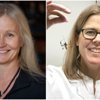Fritextsökning
Artiklar per år
Innehållstyper
-

How the Foreign Office will promote Swedish life science exports
The broadness and innovative strength keep Swedish life science exports strong, but the protectionist tendencies in the world are worrying, says Camilla Mellander, Director General for Trade, in an interview.
-

Life science trends 2025 – The economy
Upcoming patent expirations are driving pharmaceutical companies to acquire in 2025. In Sweden, we may be on our way to brighter times and fewer bankruptcies. Today´s part of the series with trend insights in life science for 2025 is about the economy.
-

Så ska UD främja svensk life science-export
Bredd och innovationskraft gör att svensk life science-export fortsätter att stå stark – men de protektionistiska tendenserna i omvärlden är oroande. Det säger Camilla Mellander, utrikesråd för handelsfrågor, i en intervju.
-

GSK acquires oncology research company
GSK acquires the American biotechnology company Idrx for up to 1.15 billion dollars.
-

The future of healthcare in focus: ”Together, things happen”
In march, it’s once again time for Fokus Patient, an event for the industry where the patients’ perspective takes center stage. It’s a great way to spread knowledge in Sweden and around the world, according to the initiator Penilla Gunther
-

Moderna develops mRNA vaccine against norovirus
A highly anticipated vaccine is in late clinical evaluation and could be ready for approval within a couple of years. The target is the norovirus, often called “food poisoning” or the “stomach bug”.
-

Astra Zeneca licensierar ut Crispr-teknologi
Det amerikanska Crispr-bolaget Synthego kommer att få tillgång till ett genredigeringsenzym från Astra Zeneca genom ett nytecknat licensavtal.
-

Bioarctic fälls för vd-uttalanden till journalist – efter anmälan från konkurrent
I ett vägledande utslag fälls alzheimerbolaget Bioarctic för uttalanden som bolagets vd gjorde till en ekonomijournalist i somras.
-

Trender inom life science 2025 – Del 2 AI
Artificiell intelligens blir ännu bättre på att tolka data och mer multimodal. Risker med den nya tekniken diskuteras samtidigt allt mer. Del två i serien med trendspaningar inom life science 2025 handlar om AI.
-

Tio life science-projekt får miljonanslag – ny utlysning öppnar
En rad life science-projekt har fått miljonanslag i ett svenskt proof of concept-program. 13 januari öppnar en ny utlysning.
-

Life science trends 2025 – Part 1 obesity drugs
More obesity drugs are being launched this year following Novo Nordisk and Eli Lilly's previous successes with GLP-1 drugs. But the next big breakthrough in obesity has a different mechanism of action, writes Samuel Lagercrantz in the first article in a series of trend insights for 2025. Today: obesity.
-

FDA approves new cystic fibrosis therapy
A new treatment for cystic fibrosis has been approved by the U.S. Food and Drug Administration (FDA).
-

New cell therapy raises hope for curing type 1 diabetes – "Never succeeded before"
For the first time, a patient with type 1 diabetes has undergone an islet transplantation using genetically modified insulin-producing cells that do not require immunosuppressive drugs. "A major immunological breakthrough," says Professor Per-Ola Carlsson, who leads the clinical study, to Life Science Sweden.
-

Anacardio går vidare med gynnsamma data och påfylld kassa
Solnabaserade Anacardio har säkrat 205 miljoner kronor i finansiering, och presenterar samtidigt positiva studiedata för sin läkemedelskandidat mot hjärtsvikt.
-

Trender inom life science 2025 – Del 1 fetmaläkemedel
Fler fetmapreparat är på väg efter Novo Nordisks och Eli Lillys framgångar med GLP-1-läkemedel. Men nästa stora genombrott inom obesitas har en annan verkningsmekanism. Det skriver Samuel Lagercrantz i den första artikeln i en serie med trendspaningar inför 2025. I dag: fetma.
-

Ny cellterapi ger hopp om bot för typ 1-diabetes – ”Aldrig lyckats tidigare”
För första gången har en patient med typ 1-diabetes fått en ö-transplantation med genmodifierade insulinproducerande celler, som inte kräver immundämpande läkemedel. ”Ett stort immunologiskt framsteg”, säger professor Per-Ola Carlsson, som leder den kliniska studien, till Life Science Sweden.